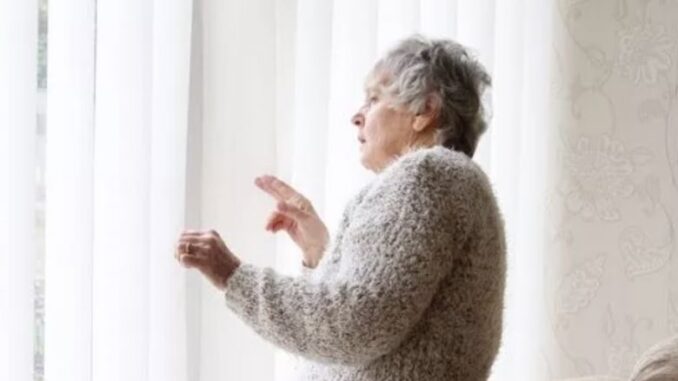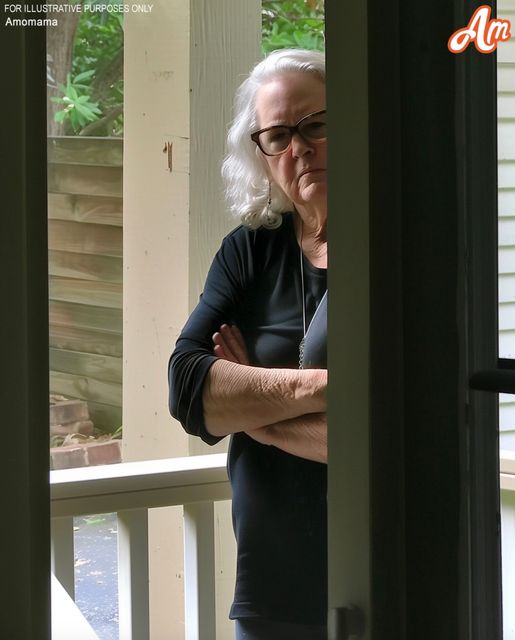
The death of my grandmother marked a profound moment of loss and mourning for our family, yet the events that unfolded in its wake added layers of stress and disbelief, primarily due to the actions of Mrs. Jenkins, the neighbor next door. Her insistence on seeing my grandmother’s will, and her refusal to leave my porch when I denied her request, escalated into a confrontation that I could never have anticipated.
Before I dive deeper into that ordeal, let me provide some context. My grandmother, a kind yet fiercely independent woman, was diagnosed with cancer about a year before her death. She decided against undergoing treatment, having witnessed the toll it took on my grandfather years earlier. It was a decision that we, as a family, struggled to accept but ultimately respected.
In her final months, knowing her time was limited, my grandmother began the process of distributing her belongings. She invited her children and their families to her house, encouraging everyone to choose items they wanted to keep. “Here’s an open invitation for all,” she declared, “Pick whatever you want from my house and let me know.” This wasn’t as straightforward as it sounded; there were specific family heirlooms that were already promised to certain family members, and everyone was aware of the sentimental assignments laid out long before.

That gathering was the last time we saw her in good spirits, laughing and chatting with family around her. A few weeks later, she passed away peacefully in her sleep. While her death was a painful blow, there was a small comfort in knowing she had reunited with my grandfather.
The process of executing her will seemed straightforward initially. My grandmother had always been meticulous with her affairs, and everything appeared to be in order. The house was left to my father, her eldest son, while his siblings received various combinations of cash, jewelry, and other valuable items.
My father was particularly touched by inheriting the family home, the very place he had grown up in. “Every room reminds me of the good times we spent there,” he often said. “I plan to redecorate and restore it to what it looked like in my childhood.” Unfortunately, he never got the chance to fulfill those plans.
Just two weeks after my grandmother’s death, my father passed away unexpectedly. The shock was immense. One day he was fine, and the next, he didn’t wake up in the morning. His death left the family reeling, and suddenly, I was thrust into handling his affairs in addition to my grandmother’s.
During the reading of my father’s will, it was revealed that everything, including the inherited house, was left to me. “Jacqueline, since you’re Mr. Parker’s only child, everything is left to you,” the lawyer explained. I was overwhelmed, not only by the grief of losing both my grandmother and father so closely together but also by the sudden responsibility of handling their estates.
A month later, I moved into my grandmother’s house, ready to start a new chapter amidst the old memories embedded within its walls. However, just as I was settling in, the peace was shattered by a loud knock at the door.
“Coming!” I called out, wiping my hands on a kitchen towel. When I opened the door, there stood Mrs. Jenkins, my grandmother’s neighbor, arms crossed and with a stern look on her face. My grandmother had often referred to her as “that entitled lady,” and I was about to understand why.
“Hi,” I greeted her.
“Who are you?” she demanded, skipping any niceties.
“I’m Jacqueline. And you are?”
She introduced herself as Mrs. Jenkins, although I already knew who she was—the lady with the notoriously troublesome grandchildren.
“I assume you’re Maureen’s granddaughter. She promised me something,” she stated abruptly.
Surprised, I asked, “Oh, really? And what might that be?”
“I need to see the will,” she demanded.
“The will?” I replied, taken aback. “It only included family members, Mrs. Jenkins.”
Undeterred, she claimed, “Your grandma loved my grandkids like her own. I just wanted to see the will to confirm if there’s anything for them.”
